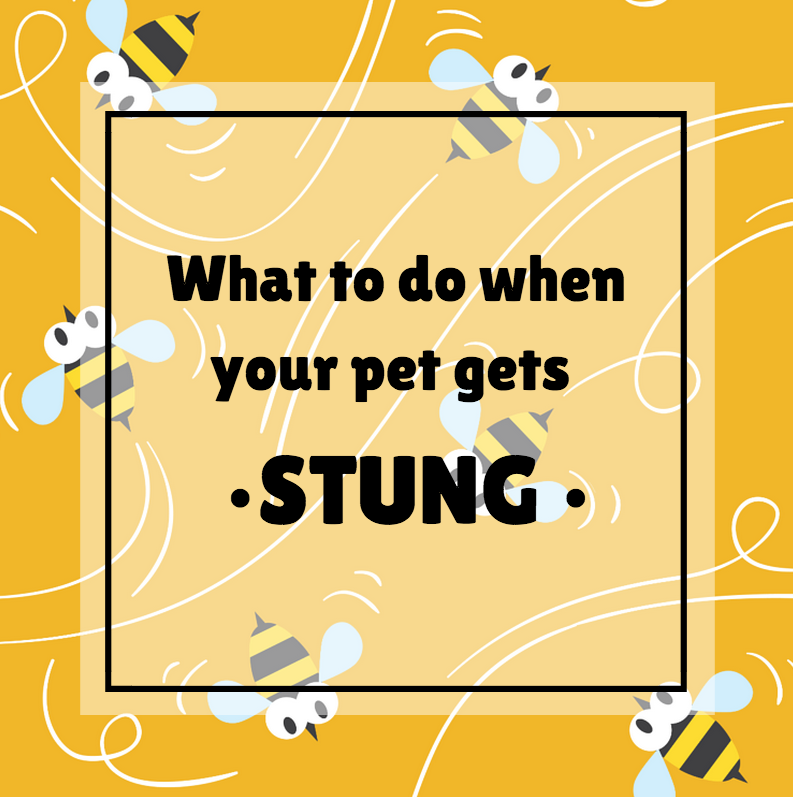Tis the season for close encounters with bees, wasps and biting insects. Catching flying bugs and scurrying spiders is one of my cat’s favourite pastimes. My cat has taken on the job of keeping our flying insect population at bay in my home as I have been noticing a milieu of downed wasps and such scattered around the floors.
Although my wasp phobic 7 year old daughter has been stung twice this week, my wasp hunting cat has surprisingly managed to avoid being stung so far. However, don’t be misled by my fortunate cat Cindy, that our pets are somehow immune to bites and stings as wasps and spiders are definitely non discriminant in their victims.
For many of our curious pets who cannot help but chomp at the buzzing or pounce on the scurrying 8 legged ‘toy,’ getting bitten or stung is only a matter of time:
Clinical Signs:
A bite or sting can cause swelling, redness and itching. Some animals can have an allergic reaction to a sting or bite that may result in hives, facial swelling, vomiting, difficult breathing or even collapse.
What To Do:
- If a stinger can be found, use tweezers to remove the stinger, which is located below the venom sac. If the sting just happened, don’t put pressure on the venom sac as that would inject more of the venom into the pet.
- Apply cool compresses to the area.
- To help neutralize some of the acidic venom, apply a paste mixture of baking soda and water to the sting area.
- A topical or an oral antihistamine may help decrease the local swelling if it is mild. Speak to your veterinarian first about type and dosage of antihistamine prior to giving.
- You pet should be examined immediately by a veterinarian if there is facial swelling, breathing difficulty or collapse.
What Your Veterinarian Will Do:
Depending on the severity of your pet’s allergic reaction, your veterinarian may give him an injection of an antihistamine (eg. Benadryl) or a fast acting corticosteroid. Your pet would then be watched closely until signs of the allergic reaction have abated to ensure further intervention is not needed.
For pets that have experienced severe anaphylaxis such as difficulty breathing or collapse to a sting or insect bite it is worthwhile to discuss with your veterinarian about keeping an epi-pen in your pet’s first aid kit for future stings or bites.



